Apple plans to upgrade its entire AirPods lineup this year in one form or another, with a combination of new model launches and upcoming software updates for existing devices.
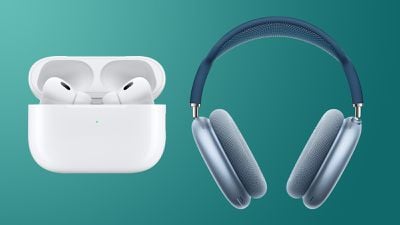 Whether you're holding out for the next generation of AirPods or AirPods Max, or just want to know what new features are on the way for your current earbuds, keep reading for the full lowdown on what to expect.
Whether you're holding out for the next generation of AirPods or AirPods Max, or just want to know what new features are on the way for your current earbuds, keep reading for the full lowdown on what to expect.
Fourth-generation AirPods are expected to arrive in late 2024, with Apple planning to release two versions at different price points. Both models will feature a redesigned look, including a USB-C port instead of a Lightning port, shorter stems similar to the AirPods Pro, along with an updated fit and enhanced audio quality.
The higher-end version is expected to include Active Noise Cancellation (ANC), making ANC available at a lower price point for the first time. They are also likely to have a speaker in the charging case that can play a sound for Find My location tracking. This model will be more affordable than the AirPods Pro ($249) but will not include features like silicone ear tips.
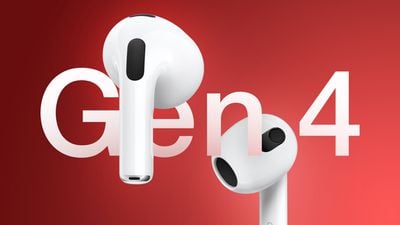

Apple says the H2 chip provides an "exceptional acoustic experience" when paired with a new low-distortion audio driver and custom amplifier in the AirPods Pro. The AirPods Pro offer richer bass and clearer sound across a wider range of frequencies partly due to the computational audio improvements facilitated by the H2 chip, so similar enhancements seem highly likely to come to the fourth-generation AirPods.
The launch of the two AirPods 4 models is expected in September or October 2024, which will also see the current AirPods 2 and AirPods 3 discontinued.
AirPods ProApple's upcoming iOS 18 update introduces several enhancements for the current second-generation AirPods Pro, leveraging machine learning and AI. New head gestures will allow users to control AirPods Pro hands-free—nodding to answer a call or shaking their head to decline. Siri Interactions will also enable hands-free management of calls, messages, and notifications without speaking.
iOS 18 adds Voice Isolation to AirPods Pro, improving call clarity by filtering out background noise and focusing on your voice, similar to an existing iPhone feature. Additionally, the Adaptive Audio feature, which adjusts sound and noise cancellation based on your environment, will now offer a customizable setting for finer control.
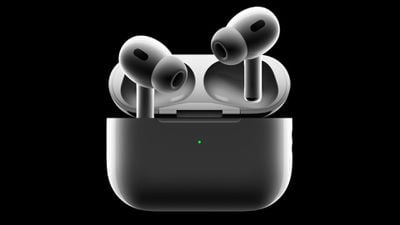

Lastly, iOS 18 will introduce a "hearing aid mode" to AirPods Pro. Although they already have a Conversation Boost feature, this update further positions them as a potential hearing aid device.
Apple is expected introduce a redesigned third-generation AirPods Pro in 2025, with refined design and better audio quality, along with a faster processor.
AirPods MaxAirPods Max are the oldest current-generation AirPods product still in Apple's lineup. It's been over three years since Apple launched AirPods Max in December 2020, and only recently have we begun hearing rumors about Apple's plans for a new-generation model that is coming later this year.
Apple will replace the Lightning port found on the current-generation AirPods Max for a USB-C port. This will ensure the headphones comply with European regulations, and will bring consistency across the company's AirPods lineup. This of course means AirPods Max 2 will come supplied with a USB-C to USB-C charging cable, rather than a Lightning to USB-C cable. Apple will also need to offer a USB-C to 3.5mm audio accessory cable so that users can plug AirPods Max 2 into 3.5mm audio ports.
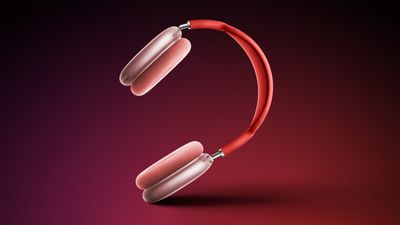

Apple is expected to offer second-generation AirPods Max in fresh colors, although what those colors might be remains unknown. AirPods Max are currently available in Space Gray, Silver, Green, Sky Blue, and Pink, although interchangeable ear cushions allow for many color combinations.
While there are no rumors that claim AirPods Max 2 will feature the H2 chip, it would seem reasonable to expect them to do so. Apple's custom silicon chip is designed specifically for earbuds and headphones, and enables improved computational audio to enhance sound quality on the current-generation AirPods Pro and improves battery life with better energy efficiency. Without the H2 chip, AirPods Max would also miss out on Adaptive Audio features including Personalized Volume and Conversation Awareness.
Coming to All AirPods ModelsPersonalized Spatial Audio is a feature that already exists for movies, TV shows, and music. It uses the TrueDepth camera on your iPhone to scan your face and ears, developing a personal profile that customizes Spatial Audio just for you.
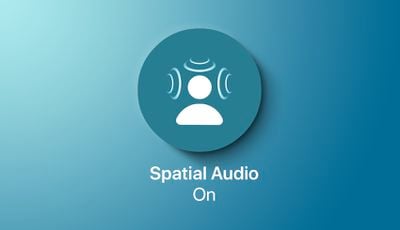


0 Comments
Post a Comment